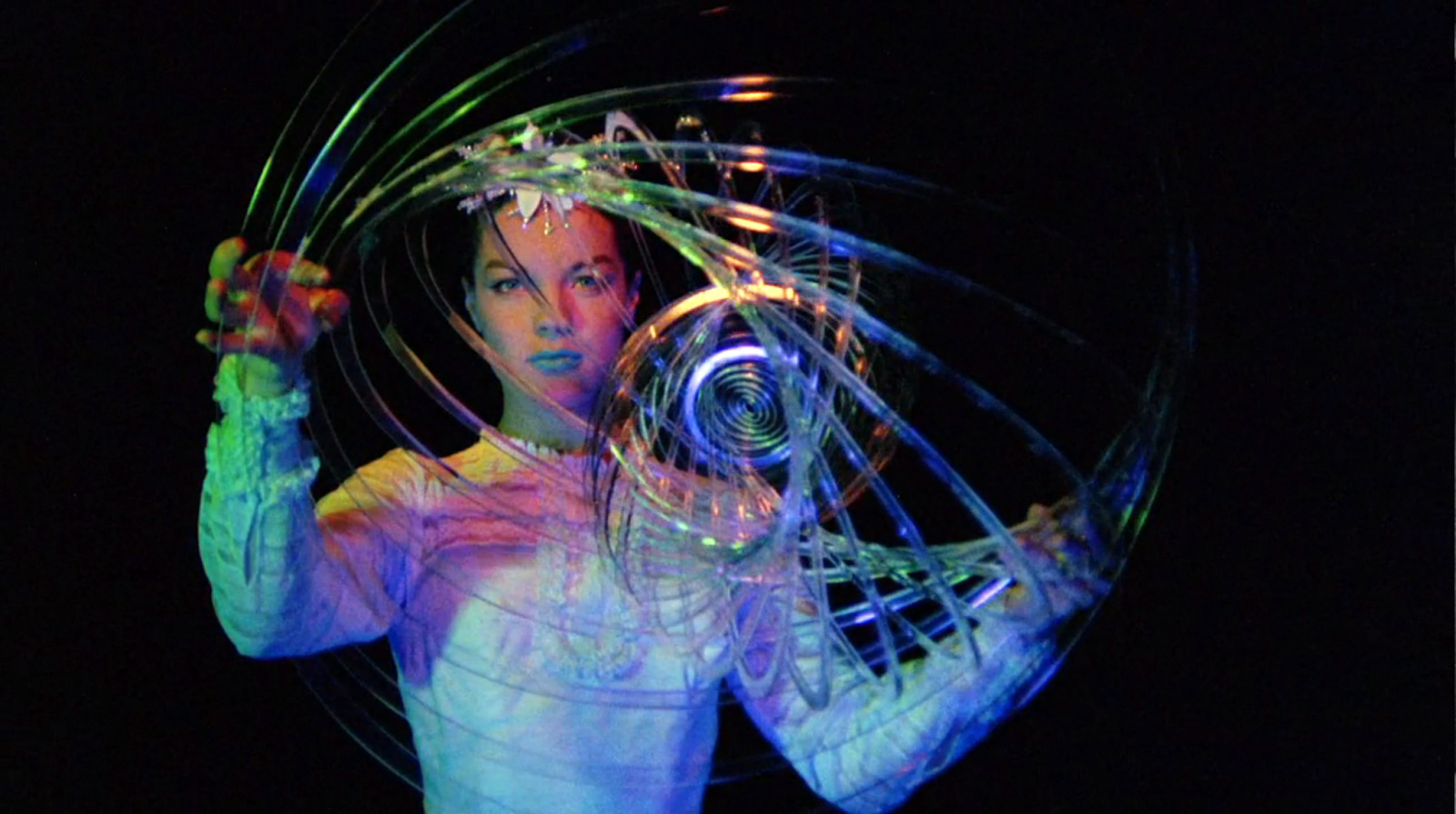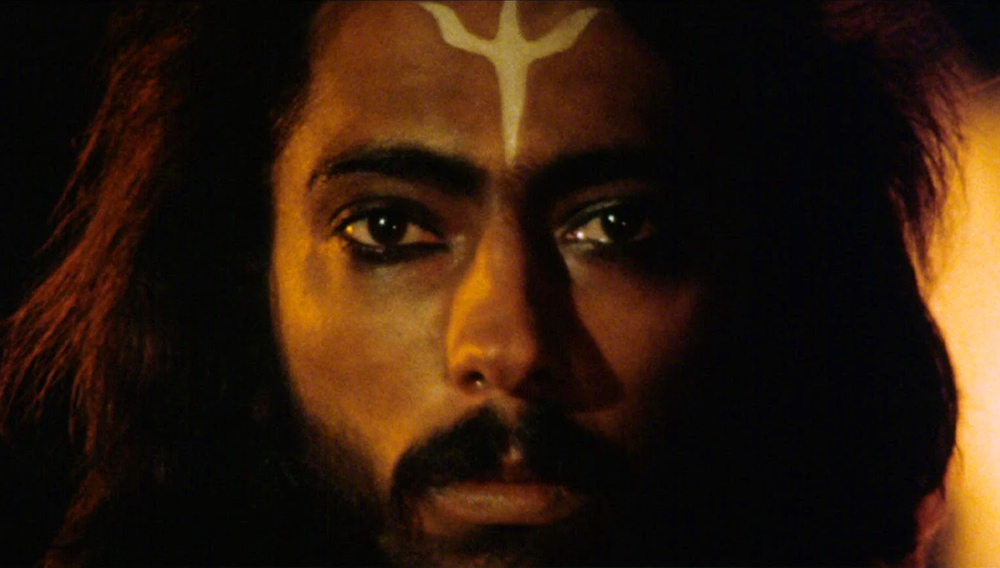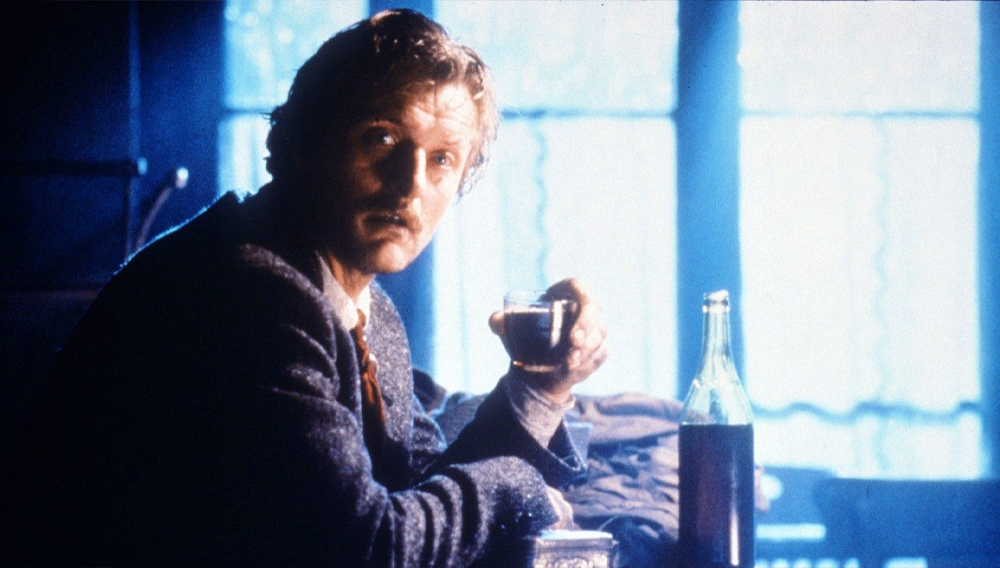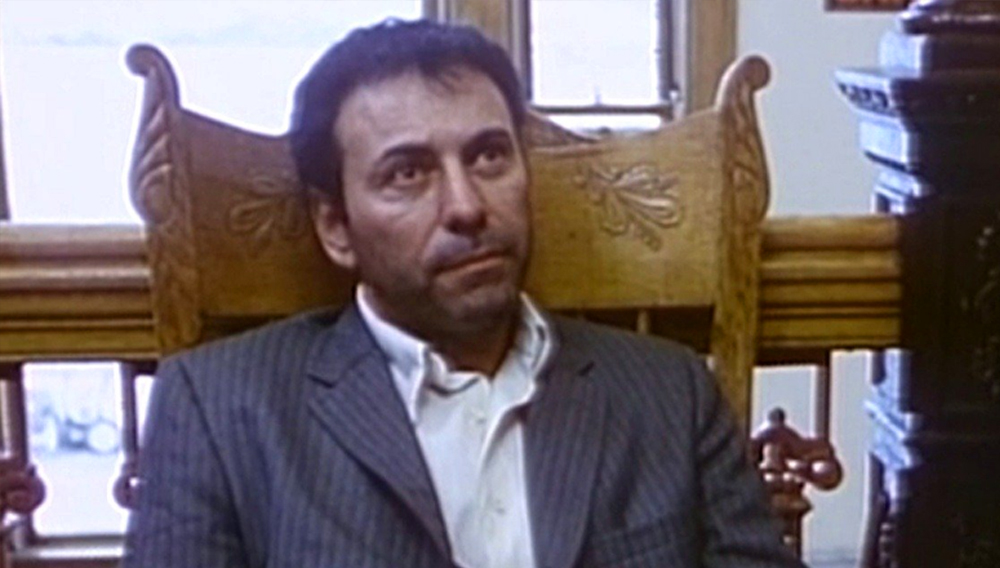
You’d think they hadn’t ever heard of Godard. You’d think they’d never heard of modernism, or postmodernism, or understood even remotely what those things were. Never saw a New Wave film, or anything older, really, than Star Wars. Never contemplated the idea that maybe movies don’t have to be holistic narrative immersions, but sometimes, if only occasionally, they can be something else. Never dreamt that they, as moviegoers and film reviewers, should ever want anything more than to be perfectly passive, drugged into a dreamy, manipulated stupor, during a cinematic experience.
Jean-Luc Godard’s 3D missile of ambivalence, Goodbye to Language, has landed on stateside screens, after an enraptured Cannes reception, and the manner in which it has been “reviewed” tells us more than we’d really like to know about the state of film criticism in America. While some seem to “get” Godard—Eric Kohn at Indiewire, and Michelle Orange in The Village Voice, primarily—too many flounder and flail, their viewing and reviewing reflexes atrophied from decades of superhero noise farts and teenage paranormal-puberty parables. That is, if such reflexes were ever functioning in these writers to begin with. The New York Post‘s Lou Lumenick reveals everything about himself and next to nothing about the film, in ways that should absolutely separate his readers from anyone who actually takes movies seriously:
Trouble sleeping? Just try the latest inscrutable prescription from Swiss iconoclast Dr. Jean-Luc Godard, guaranteed to be twice as effective and three times as fast-acting as Ambien—or maybe it’s the other way around.
Dr. Godard, who thrilled the world with Breathless a half-century ago, has been around long enough to go from enfant terrible to simply a cranky 83-year-old bore pretentiously lecturing on cinema and the world in a private language only film critics and Upper West Side audiences pretend to understand at this point.
“Those lacking imagination take refuge in reality,” Godard says in an opening title card, thereby putting the onus on anyone complaining about lack of coherence in this story about a frequently naked woman (Héloise Godet) who seems to be having an affair with an older man (Kamel Abdeli) while discussing equality and watching old movies on TV.
“This story” is merely the most hilarious of the abundant indications that Lumenick shouldn’t be writing film reviews for a major newspaper, even if it is the Post. (That “pretend to understand” is virtually a confession, excluding Lumenick from the “film critics” he so disdains.) I’m old-fashioned, and I think a few skeletal qualifications for the job should apply—like staying awake, paying attention,and having the scantest familiarity with New Wave legacies. Lumenick’s journalistic squib is not unlike a sports writer wondering in print how it is exactly that LeBron James manages all those field goals.

It gets better, but just: while New York Magazine, Entertainment Weekly and The New York Observer didn’t bother to review it at all, The New York Daily News handed it to freelancer Jordan Hoffman, whose respectful review acknowledges, as everybody but Lumenick does, the film’s scorching visual sense, but can’t help but confirm that it “may baffle all but the most devoted film theorists,” suggesting at least that Hoffman is unclear as to what film theory is. Unhelpfully, he concludes his capsule thus: “It’s all heavy, to be sure, but also playful—the dog actually gets the most screen time. For those who like movies to feel like a trip to MoMA, say hello to Goodbye.”
The smarter voices have tried to nod in the master’s direction, but end up with vague or shrugging declarations, praising the film while admitting that they don’t actually get it. The New York Times‘ A.O. Scott, no slouch generally, windily maintains that Godard “seems to divide the world into skeptics and worshipers, with not much middle ground,” hardly bothering to make a case as to what a middle ground would look like, or why the “skeptics” (as if Godard is a conspiracy theorist) are simply moviegoers that do not or will not consider anything out of the structural mainstream. Godard’s one of those artists, Scott says, who “tend to confound easy distinctions between genius and trickery, and to marshal armies of exegetes in what may be the futile enterprise of figuring out what they mean. If you try, especially on a first viewing, to crack its code or plumb its depths, you are likely to pass a frustrated hour and 10 minutes.” If Scott thinks Godard’s films may in fact be meaningless, shouldn’t he say that, and shouldn’t he also consider that code-cracked “meaning” is exactly the traditional literature-class quantity that Godard has been working against for over half a century?

Todd McCarthy, in The Hollywood Reporter, says something similar: “[N]othing is developed, and it will be left only to the tiny band of die-hard Godardians to try to make any meaningful sense of the disparate fragments stitched together here.” Implying, of course, that the “tiny band” of acolytes will concoct something or other, but it’ll be masturbatory at best. The routinely astute Andrew O’Hehir, at Salon, even seemed at a loss, writing what he said might be a “reader-proof” review of what might be a “viewer-proof” movie—gingerly saying that you “have to cast aside preconceptions about movies being entertaining, or at least about what you think that means, in order to enjoy Goodbye to Language, and that’s not possible for everybody.” Closer to the point, he does suggest that Godard’s apparent recalcitrance may well be all “about the kinds of attentiveness and focus we have lost, and about the cultural totalitarianism that makes even the tiny, marginal art-zone he has inhabited for decades no longer sustainable.” O’Hehir also tells of his screening-room experience, sitting “directly in front of a New York daily newspaper critic who was nearly driven crazy by exasperation. He sighed and rustled and slouched and put on his coat and took it off and left and came back….”
We can only wonder who it was. It’s not an uncommon story, at least in this country. It’s all pretty maddening, because the cultural realignment that Godard brought to cinema made its first splash several years before I was born—it’s as old as the Dallas Cowboys, the Civil Rights Act, an independent Mauritania and, ironically, the Hollywood Walk of Fame. Nobody should be in the dark about Godard in 2014. By now, you’d think Godard’s structural-aesthetic paradigm shift would be as ingrained in our brainpans as The Beatles and Philip Roth. Or, perhaps more accurately in terms of Godard’s hip radical project, Pink Floyd and Thomas Pynchon.
Instead, Godard has been marginalized, and even film critics, the lone voices one would assume would ably confront and digest and contextualize the work, have been running scared. (Certainly, few writing today seem to be even very aware that Goodbye to Language is not at all unlike Godard’s recent features, especially 2001’s In Praise of Love, 2004’s Notre Musique, and 2010’s Film Socialisme, and therefore should hardly be much of a head-slapper.) Somehow, the fourth dimension that Godard brought to cinema so long ago, and which has been copied and homaged so often since, has become an alien language, unfit for the twenty-first-century media life of hyper-convenience, Teflon-ed data delivery, corporate-sponsored distraction engines and mega-populist “personal” entertainment matrices.

Let’s put it this way, once and for all. It’s not that hard, really. Right at the beginning, Godard saw movies for what they were—a visionary apparatus for transforming and reexamining reality that had been coopted by corporations and turned into a commodified system of signs, a drug, a soma made up of glamour, narrative tension and placating resolutions. That’s what a mainstream movie functionally was: a formulaic emotional machine built toward a reassuring end. So like any good Brechtian, he began, in Breathless (1960), by adopting a rote genre plot-line and then for all orthodox intents and purposes ruining it, disrupting the diegesis and creating a self-conscious “movie-movie” world that was as charmingly realistic as it was obviously fake. Godard knew right away that the capitalistic form of movies—the shape of their narratives, always resolving and satisfying—was a lie. This transcendent lantern-light was being defined, by profit, as being an enveloping cataract of reassuring answers, like a bullshit religion. So, he decided his movies would not be answers, but questions. Experiments.
Which means not merely changing the narrative idea, but bursting its belly, forcing it into an uncertain quantum state, commingling with our daily lives. From 1960 on, the man’s mission has been consistent: unquarantine cinema from our everyday consciousness, our discussions, daydreams and undramatic routine moments. Push them into reality—not by having films imitate reality, but by having our reality interlock with films consciously, awake and engaged. For Godard a film is not (or should not be) a free-standing narrative experience that provides a temporary alternative to living, but is in fact part of life. It is as much a factor in the throng of our quotidian existence as sex, sunlight, meals, friendship, illness, music, love, faith. As much as a painting on the wall, or a symphony filling the air, or an architectural vaulting around us, a movie is something that lives with us in the room in real time, occupying the same world. And so we should be aware of it as such, as something that could be open-ended, something that for all of its flash and beauty is actually simply a dialogue between us and the filmmaker, a social moment, an intercourse that gives us all equal voice and equal autonomy.

This was Godard’s idea of “movies”—things we should stay fully awake for, and not forget the reality of, even as we’re watching, because it’s their effervescent nature, their proximity to life, that’s beautiful, not their ability to dope us and make us forget about being alive. He insists we stay aware that he is there, behind the image, because he is. (In Every Man for Himself, Jacques Dutronc tells his class that the unseen Marguerite Duras is in the next room—an enigmatic moment that Godard explained years later by saying that she was in the next room. Reality never goes away.) Once you get that Godard’s gorgeous, fragmented images are movies at their purest, refractions of living without the omniscient dream-state that narrative insists upon, then he becomes the most life-affirming filmmaker we’ve ever had—an exploratory celebrationist of women, sunsets, cities, dogs, cafes, hanging out, reading and, of course, movies themselves.
In any Godard film, even the ones that don’t dazzle us with coolness and eloquence, the truth of cinema is there: Godard knowing that we’re watching, us knowing he knows, the record and memory of the filming experience, the sometimes incalculable passage of minutes, the bemused distance between the actors and the “roles” we’re not supposed to ever believe, the legacy of movie tropes borrowed from and riffed upon. Don’t forget any of it, the master says almost Zenishly, it’s all part of what cinema is. And cinema, as Richard Brody titled his Godard book, is everything.

Why would we choose to see only a fraction of what this crazy, explosive art form contains in its chromosomes? If we decide to submit to blindness, we do it as sheep, corporate drones, proles thankful for the surrender of propaganda. Godard’s ferocious anti-imperialism has fluctuated over the years in tone, but it remains a bitterly recalcitrant quality, often leading him toward aphorisms and speeches that seem cryptic—as with Goodbye to Language‘s repeated question, “Is it possible to produce a concept about Africa?”—until you realize they’re not intended to be resolvable. (The Africa question is one Jean Baudrillard could’ve written a book trying to answer.)
This step-to-the-left in understanding Godard isn’t all his career amounts to, certainly, but it’s the baseline, from which you can thereafter venture onto the detours: the heartbroken cine-romance fashioned around Anna Karina; the costs and necessities of helplessly graduating to Marxist fury in the Vietnam era; the interrogations of late-twentieth-century neoliberalism; the nature of aging, as arguably only Godard has done with such honesty, on film and with movies as a function of his memory and untamable thinking. It’s the richest corpus this particular medium has ever produced, and shame on us if we can only measure it by exactly the mindless, inculcated response Godard has been trying, all these years, to show us is the equivalent of looking at life with one eye closed, and one half of our brain lulled to sleep.















